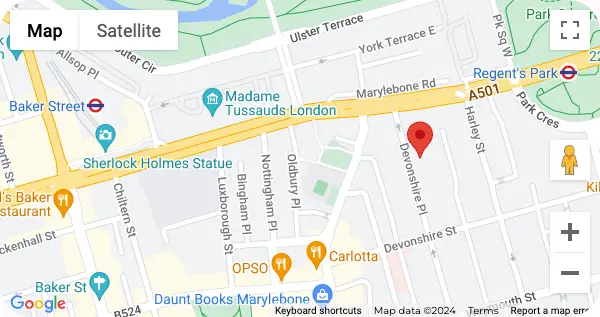Ozempic’s GLP-1 receptor activation slows gastric emptying and suppresses appetite, but for many patients commonly results in gastrointestinal side effects. Nausea in up to 20% of patients, and constipation or diarrhoea in a further 10–15%.
Dr Mike Tee
BSC, MB, BCHIR, DLO, DRCOG, MRCGP
GMC: 3118018
Ozempic Side Effects at a Glance
According to a study, adverse effects related to medicines used to treat diabetes have a big impact on the quality of a patient’s life. These medicines are used in patients with type 2 diabetes. Doctors are prescribing these medicines to manage the sugar levels of their diabetic patients.
Ozempic is one of the medicines that most doctors would prescribe to individuals with type 2 diabetes. Though it is a medication that efficiently manages the range of blood sugar, it usually causes various effects on the body of a patient. These negative effects can be controlled with the help of a healthy lifestyle and over-the-counter medicines.
What is Ozempic?
Ozempic semaglutide is an approved drug in the treatment of adults with type 2 diabetes to reduce their blood sugar levels. It is also applied to minimise the chances of kidney breakdown in diabetics with chronic kidney ailment (CKD) and minimise the chances of heart attack or stroke in some diabetic patients or those with heart disease. The clinical trials indicated that Ozempic can assist in weight loss and weight reduction maintenance.
Ozempic is a drug that elevates insulin production, retards stomach absorption, and lessens the manner in which the liver produces sugar. It helps produce better sugar levels, the feeling of satiety, or hunger control. These effects may affect the outcome of continued weight loss.
Ozempic is a mimic of the natural hormone called GLP-1, produced as we eat to balance the level of glucose in our blood and make us feel satiated after a meal. Ozempic is a type of medication referred to as a GLP-1 agonist. Type 2 diabetes patients can take Ozempic once a week. It is convenient to use because it is injected under the skin.
Ozempic has raised a lot of interest, especially in weight loss programmes in the medical world. However, bear in mind that not all people can use Ozempic, as it also poses a risk of side effects. You should take this medicine after consulting your practitioner.
How does Ozempic work?
Ozempic belongs to the GLP-1 agonist drug category and resembles a natural hormone named GLP-1 that is produced in our body after a meal to balance blood sugar and make us feel full. Ozempic controls diabetes by increasing insulin production in the pancreas, slowing the emptying of the stomach, and decreasing the level of sugar created by the liver and released into the body. These can make individuals lose weight, as the body is controlling blood sugar levels, and a feeling of fullness for a long time, as well as suppressing their appetite.
All these factors make Ozempic very popular. However, the same effects may cause gastrointestinal or hormonal adverse effects on others.
Gastrointestinal Issues
Gastrointestinal problems are the most commonly reported cases of side effects of using Ozempic. They are often experienced by the patient at the start of the treatment and usually fade away over time.
The common symptoms are:
- Nausea: Such a feeling as queasy or unsettled in the stomach, and in many cases following partaking of food or receiving an injection. This could be reduced by eating smaller, tasteless food and steering clear of fatty foods.
- Vomiting: It is the gripping expulsion of stomach contents via the mouth. Vomiting could be accompanied by dehydration in case it does not stop, and one should remain hydrated and notify their physician about the latter condition.
- Diarrhoea: Diarrhoea is characterised by loose or watery stools, which usually occur especially in the initial weeks. Until it dies down, drink as much fluid as possible, and also eat light food of low fibre content.
- Constipation: Other patients can develop a reduced number of bowel movements or difficulties passing stool. Patients can prevent constipation by increasing their water and fibre consumption, as well as physical exercise regularly.
- Pain in the abdominal region: This might manifest as bloating, cramping, or just feeling of fullness in the stomach. Although it is usually minor, patients must closedly watch themselves, most especially if they feel too much pain or if does not go away.
These symptoms can be associated with the process of slowing down digestion and the effect on appetite introduced by Ozempic. These effects can be minimised by starting on a low dose and then increasing gradually.
Other common side effects
In addition to GI symptoms, some patients also experience the following:
- Fatigue or low energy: These may occur when your body is accustomed to a reduced amount of food and an alteration in blood sugar levels.
- Headache: When blood levels fluctuate or when a patient is dehydrated, they may feel these stmptoms.
- Dizziness: Patients who have low blood sugar from Ozempic may experience lightheadedness, especially if they don’t consume enough water.
- Mild side effects (redness or swelling) at the injection site: Common and typically resolve on their own without the need for treatment.
Hormonal and Reproductive Changes
Some female patients have reported hormonal changes and menstrual irregularities. Although this is not listed on the label of the drug, anecdotal evidence indicates that weight changes or hormonal changes may affect cycles.
Effective & professional doctor-led Ozempic at our central London clinic
Cosmetic Concerns: Ozempic face and Ozempic Butt
The loss of weight might be rapid in some cases, and this might result in the loss of shape of the face and buttocks, especially in women. It has caused the development of terms such as:
- Ozempic Face: gaunt or hollow facial appearance due to fat loss.
- Ozempic Butt: Transparent decrease of volume in the glutes.
These are not the immediate side effects of the medicines but cosmetic effects of major weight loss. Those women who will experience these effects should go to their specialist right away. This will help them solve the problems and come up with possible solutions. These may include the use of dermal fillers and other helpful treatments.
Rare but Serious Risks
Generally, most of the Ozempic side effects are temporary and can be managed easily. However, long-term use of the treatment can carry the risk that still needs further study. Among the other more serious forms of concerns are:
- Pancreatitis: Pancreatitis, caused by the inflammation of the pancreas, is not a common but serious side effect of Ozempic. The symptoms are acute abdominal pain, nausea, and vomiting. In case you are struck with sudden and continuous pain in the stomach, then immediately contact your doctor. The treatment of pancreatitis in its early stages is important to avoid serious complications.
- Thyroid Tumours: Ozempic can lead to the development of medullary thyroid carcinoma (MTC), a type of thyroid cancer. Among the symptoms that patients are advised to be watchful of are swelling, neck lumps, difficulty swallowing, and difficulty breathing. Early detection needs regular checkups. MTC is rare, but there is a need to be sensitive and to observe users who are on Ozempic.
- Kidney Problems: Ozempic seems to cause kidney problems, particularly in patients having pre-existing problems. It puts additional pressure on the kidneys, influencing the levels of blood sugar. Monitoring of the patients should start with symptoms of increased or decreased output of urine, swelling of the legs, or feet. Constant attendance and observance are crucial to identify and control kidney complications at an early stage.
Managing Ozempic Side Effects
The beginning of a new medication might be the relief, but may be accompanied by unwanted side effects. What can you do to limit side effects? Not all of them are preventable, but there are easy and efficient things you can do to make them less noticeable and help your body adjust to a new state. These are some of the applicable tips that can guide you on how to take charge of the situation during treatment.
- Start low, go slow: You may start Ozempic at a lower dosage and increase it slowly when your body has adjusted.
- Stay Hydrated: When a patient is suffering from diarrhoea or vomiting, drinking lots of fluids is important.
- Avoid Heavy Meals: It is likely to increase vomiting when you take large amounts of food.
- Eat Slowly and Mindfully: It can help minimise the pain by assisting in digestion.
When to seek medical advice
Though most of the side effects are minor and can be subject to treatment, there still can be some symptoms that indicate a more significant issue. You should be attentive to your body and understand when you need to consult a specialist. Quick medical care will avoid some complications and keep you safe during treatments. Be on alert for the following warning signs:
- Severe or chronic abdominal pain
- Symptoms of pancreatitis (acute pain, vomiting, or nausea)
- Difficulty in swallowing or a neck lump
- Indication of an allergic reaction (a rash, swelling, difficulties in breathing)
Key Takeaways
- Ozempic can be used in the management of diabetes as well as facilitate weight loss, though it has some side effects
- The majority of side effects are gastrointestinal, and they will disappear itself.
- Certain women will develop hormonal or cosmetic changes
- The long-term risks are uncommon and severe, like pancreatitis or thyroid problems.
Importance of medical supervision and individualised treatment plan
Doctors are worried about new and extreme side effects of Ozempic, particularly in used off-label for weight loss. Although they started prescribing it to type 2 diabetes, a large proportion of users have been taking it to lose weight, with unforeseen complications like sunburn, hair and nail problems, dry mouth, bad breath, and oral disease such as Ozempic tongue.
Health experts emphasise that most of these effects have been associated with rapid fat loss, nutritional deficiency, as well as dehydration.
The manufacturer of Ozempic, Novo Nordisk, highlights that the medicine has to be used under medical control. Treatment should be specific based on his or her medical profile, and side effects have to be monitored. All the adverse reactions have to be reported to your healthcare provider.
In conclusion, Ozempic should be taken in a responsible way and under the supervision of a specialist, and an individual treatment plan should be proposed to guarantee safety and reduce risks.
FAQ’s
- What are the most common side effects of Ozempic?
Nausea, vomiting, diarrhoea, constipation, and abdominal discomfort are relatively common side effects of Ozempic that are commonly reported by most patients. These abdominal pains are normally observed within the first week of treatment when the body is getting accustomed to the medicine. They are mostly mild to moderate and usually go away without any treatment. To limit these effects, your physician can opt to prescribe a small dose at first and slowly build up the dose. Nausea will also be eliminated by eating smaller quantities of food, besides ensuring that spicy food and those containing fats are avoided.
- Are there side effects specific to women?
Yes, Ozempic could have certain possible side effects, which are unique to women. Reports have been issued of hormonal imbalances that cause menstrual irregularities, but as yet, this has not been confirmed and is not reported on the drug label. Moreover, a significant percentage of women have raised the issue of transformations in their aesthetics since they include the so-called Ozempic face, when their faces look thin or old because of the loss of fat. Other effects, such as loose skin over the body (also referred to as ‘Ozempic butt and Ozempic feet’), can occur, and this is uncomfortable to those who have put importance on their physical appearance. Though these cosmetic effects are not harmful, they can make their emotional or mental well-being suffer.
- What are the potential long-term risks of using Ozempic?
Ozempic is a medication that helps treat type 2 diabetes and manage weight loss. When this medication is used long-term or has been misused, it can lead to multiple possible long-term risks. They may have potentially damaging effects, including pancreatitis, which is severe pancreatic inflammation, and gall bladder disease, including gallstones, or cholecystitis, which can occur as a consequence of rapid loss of fat. Kidney disease can also develop if the patient continues to suffer from dehydration because of nausea and vomiting. The other thing you should be more worried about is the risk of tumours in the thyroid, like medullary thyroid carcinoma (MTC). Although it is still not proven to affect humans, the disease has been seen in animals. These risks may evolve in the long run. Patients should take Ozempic only with the medical professional’s advice. It is always good to monitor the effects of Ozempic on your body, and any complications should be communicated with your doctor.
- How can I manage side effects from Ozempic?
You can control the side effects of Ozempic with good lifestyle habits and with the help of your doctor. You may start at a low dosage to let your body become tolerant of Ozempic. These will help you feel less symptomatic of gastrointestinal symptoms like nausea or diarrhoea. It can also help you ease the pain of digestive symptoms if you avoid or just eat spicy or fatty foods in smaller amounts. If you are already experiencing vomiting or diarrhoea, you need to drink lots of fluids to replenish the lost one in your body. Eat healthy foods and add vitamins and proteins to your daily diet if you are experiencing significant weight loss, as well as thinning hair or brittle nails. Good oral hygiene, or regular checkups with your dentist, can help if your mouth is dry or if you are having bad breath. It is always best to have regular communication and check-ups with your doctor to help you manage side effects as early as possible.
- When should I seek medical advice regarding Ozempic side effects?
Contact your doctor in case you have any noticeable side effects that are severe or persistent, or if your daily life is already affected. Severe signs and symptoms are those that indicate the sudden or severe abdominal pain, as it may indicate pancreatitis; yellowing of the skin or eyes indicating liver or gallbladder illness; or continued vomiting or dehydration. Moreover, the enlargement of the neck, change of the voice, and inability to swallow might point to the complications of the thyroid. In case you are developing mental fog or changes in mood, or cannot concentrate, these might also be connected with nutritional deficiencies and will be worth mentioning to your healthcare specialist. Never fail to inform your physician of any worrying symptoms as soon as possible to keep yourself safe during the Ozempic intake.
Reserve a GLP-1 appointment
One of our experts will be more than happy to answer any questions you have.
Book AppointmentAdam Lawler
★★★★★
Incredibly helpful, explained everything so clearly.
20th February 2026
Filosa Kamba
★★★★★
Rose is wonderful human being,very helpful and I am glad I visit and met someone like her
21st February 2026
Zoheb Ahmed
★★★★★
Dr Basu was very friendly, welcoming and answered all my queries really well
20th February 2026








